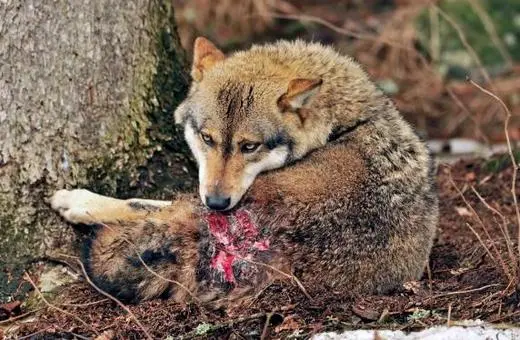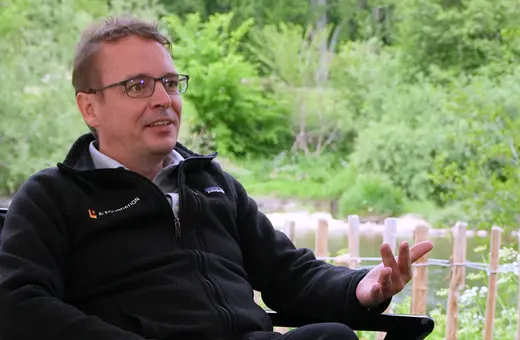The climate crisis is in many ways the consequence of having treated nature as a resource for the benefit of humans. Yet even environmentalists can find it hard to break away from this instrumental framework of thought. They talk of the benefits that wild animals can bring to the ecosystem, or the wonder of renewable sources of energy. Western thought has been all too happy to attribute intrinsic value to humans. It's about time we recognised that nature is also valuable in itself, not just in the ways in can benefit us. Doing so would make available a whole different approach to the climate crisis, writes Michael Paul Nelson.
"You say that I use the land, and I reply, yes, it is true; but it is not the first truth. The first truth is that Iove the land; I see that it is beautiful; I delight in it; I am alive in it." - N. Scott Momaday (Kiowa)
What does it mean to say that nature is intrinsically valuable? Most generally, to say that nature is intrinsically valuable is to say it is valuable beyond its use or instrumental value, or merely as a means to some end. To suggest, for example, that wolves possess intrinsic value is to suggest they have value even beyond what they can provide as ecosystem engineers or eco-tourism revenue generators. In other words, they have value in their own right, in and of themselves, they merit direct moral standing, as ends in themselves
Intrinsic value is, therefore, not a negation of instrumental value, it is rather an accretion, an addition, another layer. For example, while we believe our children are intrinsically valuable, taking the tax deduction for them, or having them mow the lawn does not negate their intrinsic value. Historically, the attribution of intrinsic value and direct moral standing in humans has been premised upon the possession of some morally relevant quality (e.g., rationality, language use, self-consciousness, autonomy, or sentience).
How is that intrinsic value grounded? There are several ways to answer that question.
For some it means that nature itself possess some quality that makes it valuable in and of itself, quite apart from how it is valued by humans. This, sometimes called the “objectivist” view of intrinsic value, implies that intrinsic value is to be discovered in nature. An objectivist might assert that intrinsic value is bestowed in nature by a divinity, or they might see in nature some quality that we already believe bestows intrinsic value to humans. Echoing Spinoza’s assertion that all things are “animate, albeit in different degrees,” Jane Bennett, for example, writes “If matter itself is lively, then not only is the difference between subjects and objects minimized, but the status of the shared materiality of all things is elevated…The ethical aim becomes to distribute value more generously, to bodies as such.”
“If matter itself is lively, then not only is the difference between subjects and objects minimized, but the status of the shared materiality of all things is elevated.”
For others, all value is attributed, not discovered, by valuers. This, sometimes called “subjectivist” view of intrinsic value, implies that intrinsic value ought to be attributed to nature, by those capable of such attribution, namely humans. Recognizing that we intrinsically value ourselves, but rejecting any clear metaphysical distinction between human selves and nature, Deep Ecologists, for example, believe this implies that nature ought to also be attributed intrinsic value.



















Join the conversation